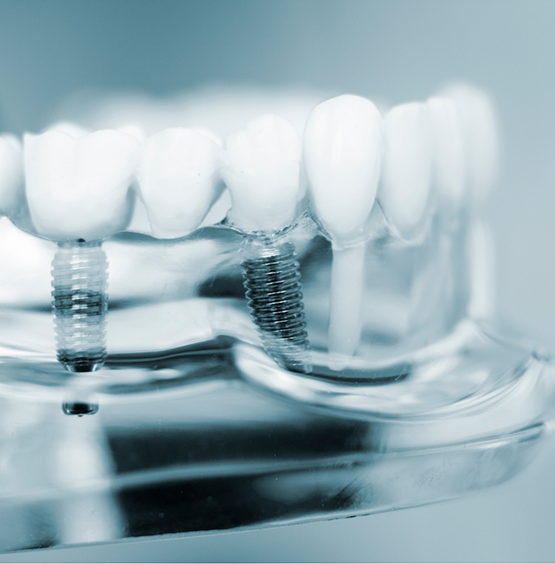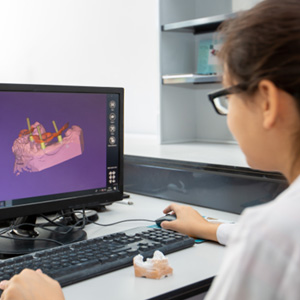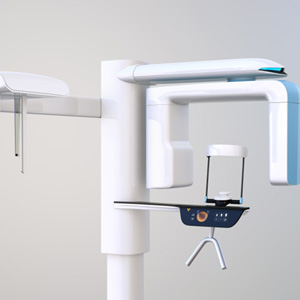Dental Implants Falmouth
Creating Smiles That Last Forever
Going through your everyday life without all of your natural teeth can be difficult and frustrating! Routine tasks like chewing your food and smiling with friends can feel next to impossible. What if you could go back in time when you had all of your teeth and could eat all your favorite foods and smile with all the confidence in the world?
We can make your dreams come true at Hill Dental Wellness. Dr. Hill uses state-of-the-art technology to provide the highest-quality care. With her three-dimensional CBCT scanner and computer-guided implant placement, she can provide predictable and precise results! Call us today to schedule a consultation to learn if you’re a good candidate for dental implants in Falmouth.
Why Choose Hill Dental Wellness for Dental Implants?
- Dentist Places & Restores Implants In-House
- CBCT Scanner & Guided Dental Implant Placement for Improved Accuracy
- Dental Practice Delivering Superior Treatment Options for Over 30 Years
What Are Dental Implants?

Dental implants are small posts made of biocompatible titanium. They are surgically placed in the jawbone to mimic and replace the roots of missing teeth. Titanium naturally integrates with the bone structure in the jaw, becoming firmly embedded as the roots of your original teeth. After the implant heals to the bone, a small metal attachment called an abutment will be connected to the post. This will connect the implant to either a crown, bridge, or denture, depending on your specific treatment needs. Dr. Hill will discuss your options in depth during a consultation.
The 3-Step Dental Implant Process
Many dental offices send their patients to outside specialists for the surgical portion of the implant process. However, at Hill Dental Wellness, the entire process is completed all under one roof! Dr. Hill has invested in the latest 3D technology to assist in dental implant placement. The three-step process to get a dental implant is as follows:
Initial Consultation: Dr. Hill will meet with you to take measurements of your mouth and determine your candidacy for dental implants. She will also go over your various treatment options to identify which type of restoration you will need.
Dental Implant Surgery: Dr. Hill will perform dental implant surgery in-house. Once your new implants are in place, she will send you home so that osseointegration can begin – the fusing of your implants with your jawbone. Metal abutments will then be attached once your mouth fully heals.
Receiving Dental Restoration: When ready, you will return to our Falmouth dental office to receive your customized restoration. Using an impression previously taken of your smile, we will have a crown, bridge, or denture crafted to replace your missing teeth and restore your appearance and oral function.
If you’re interested in learning more, check out our video!
Is the Dental Implant Process Painful?

Dr. Hill’s priority is patient comfort and safety. She uses the latest numbing technology and is highly trained in anesthetic administration. We will make sure you remain comfortable throughout the procedure. For patients who are nervous and would like to be more relaxed during treatment, we offer oral conscious sedation and IV sedation.
Learn More About Sedation Dentistry
Benefits of Dental Implants

Since more than 500,000 dental implants are placed annually, these amazing prosthetic devices are rapidly becoming one of the most popular ways to restore lost teeth. Because of the remarkable process through which they are placed in the jawbone, these advanced prosthetic appliances can deliver a range of incredible benefits that traditional dentures and bridges cannot provide. Here’s a brief overview of how dental implants from Hill Dental Wellness can enhance your oral and overall health, confidence, and quality of life.
Day-to-Day Benefits

Replacing your lost teeth with dental implants can considerably improve your daily life in ways such as:
- Giving you the chewing power you need to enjoy any foods you could with natural teeth. This means you’ll be able to enjoy all sorts of tasty fare like juicy steaks, crunchy nuts and seeds, and snappy, raw fruits and veggies.
- Being easy to clean with conventional oral hygiene methods like brushing and flossing so you won’t need to worry about the elaborate and time-consuming cleaning and maintenance rituals required by conventional dental restorations.
- Completing your smile so you can grin with confidence at friends, family, neighbors, coworkers, and strangers.
- Being anchored securely in place within the mouth, which can prevent embarrassing incidents such as slurred words or your appliance falling out of your mouth during speech or meals.
Health Benefits

Dental implants can also help you maintain good health in ways like:
- Providing superior chewing power so you can enjoy the diverse and nutritious diet your body needs to stay strong and healthy. Being able to chew thoroughly can also set you up for comfortable and consistent digestion.
- Bracing the surrounding teeth to prevent them from drifting out of alignment. This can prevent oral injuries and infections as well as further tooth loss.
- Providing the jawbone with the stimulation it needs to maintain its strength and shape. This can prevent issues caused by a receding jaw such as a sunken mouth, withered lips, and diminished confidence in your appearance.
- Preventing restorations from sliding about in the mouth, which can prevent soft tissue irritation and sores due to friction or enamel damage due to impacts.
- Being simple to clean makes it easier to prevent oral infections that can compromise dental implants such as gum disease.
Long-Term Benefits

You may notice that dental implants from our Falmouth office provide several long-term benefits such as:
- A 95% success rate even ten years after being placed, which makes them a smart and practical investment in your oral health.
- Lasting for decades or possibly a lifetime if they receive excellent care, which may save you thousands of dollars that would be spent on replacements for traditional bridges and dentures over the years.
- Giving you a stunning grin that helps you stand out from the competition when being considered for a new job or a promotion. In this way, dental implants can potentially pay for themselves.
How Much Do Dental Implants Cost?
Several factors influence the cost of dental implants in Falmouth. A few are dependent upon your current dental health. For example, if you need to have a tooth extracted and bone grafting completed before dental implant placement, the cost will likely be higher than someone who does not require these procedures.
During your initial consultation, Dr. Hill will complete a comprehensive exam to determine your needs. She will give you the clinical and financial information so that you remain confident in moving forward with treatment.
Dental implants may have a high upfront cost, but we believe they are worth it as a long-term investment! If you would like more information, please reach out directly to get a video of Dr. Hill explaining the cost of dental implants.
Dental Implant Post-Op Instructions

There is a short recovery period following dental implant placement. Dr. Hill and our team will provide you with detailed aftercare directions to use at home. Carefully following our instructions will minimize your risk of post-op complications and help to keep you comfortable. To get a preview of what you may experience after your surgery, continue reading below.
What to Do Directly After Dental Implant Surgery

During the initial stage of your recovery, blood clots should start to form at your surgical sites. Since they are a key part of your body’s healing process, they need to be protected! To that end, you should:
- Try to avoid touching your surgical sites with your tongue or fingers.
- Do not smoke or drink through a straw. The suction created by this actions could dislodge your blood clots.
- Do not spit. Instead, swallow extra saliva or use tissues to absorb it.
Common Side Effects When Recovering from Dental Implant Placement

Some of the most common side effects after dental implant placement surgery include:
- Intermittent bleeding. This may go on for multiple days. Use gauze and light pressure to control it.
- This may continue over the first 72 hours and last for a week or longer. Use cold compresses to manage it.
- General discomfort. You should be sure to get plenty of rest and take pain medication in appropriate doses.
If you experience any severe or prolonged side effects, reach out to our team right away.
Your Diet After Dental Implant Surgery

At first, you should stick to a no-chew diet. This can include things like yogurt, mashed potatoes, pudding, and even ice cream. Then, you can graduate to fork-tender foods, like meatloaf, scrambled eggs, and pasta. Gradually, as you feel up to it, you can work your way back toward a normal diet. However, you should continue to be cautious around your healing implant sites.
Post-Op Health & Oral Hygiene

You can resume brushing your teeth the day after your surgery, but exercise great care around your surgical sites so you do not disturb them. If you choose to use a mouthwash, do not use any that have a high alcohol content (any prescription mouthwashes should be used as directed). You can also periodically rinse your mouth with warm salt water, which can help to ease inflammation and protect against bacteria.
What to Do After Your New Teeth Are Attached

After your new teeth are attached to your dental implants, you can celebrate the conclusion of your main implant treatment! There is no extensive downtime, and although your gums might be a bit tender, you can start to use your restored teeth right away. Our team will coach you on how to care for them so they remain healthy, strong, and beautiful for the long haul.
Dental Implant Technology

When it comes to rebuilding smiles with dental implants, we strive to do everything we can to ensure that our patients are able to enjoy the best possible outcome. Taking advantage of modern technology allows us to be more precise when placing dental implants and improves our ability to provide the customized care our patients deserve. Below is a closer look at the advanced instruments at our office that play an important role in the dental implant process.
Computer-Guided Dental Implant Surgery

Dental implant posts can’t be placed just anywhere in the mouth; each one needs to be inserted into exactly the right spot in the jaw. To make this easier, our practice utilizes computer-guided dental implant surgery. Simply put, we can create a three-dimensional model of your mouth that can help us determine the ideal location of your implant posts. Then we can create a surgical guide that provides a clear visual of where the posts need to go.
Computer-guided dental implant surgery is generally much more precise than traditional dental implant placement, and it can help reduce the risk of unnecessary damage to the tissues and nerves inside your mouth. Furthermore, this type of implant surgery tends to be less invasive, which can make the treatment more comfortable and potentially reduce the amount of time required for recovery afterward.
3D Cone Beam Imaging/3D CT Scanning

When planning your dental implant surgery, we need to gather as much information about your mouth as possible, such as the locations of blood vessels and nerve endings. However, a regular dental X-ray won’t capture all of these important details. That is why, when planning the dental implant process, we use a cone beam computed tomography (CBCT) scanner.
Thanks to our CBCT scanner, we can create a comprehensive three-dimensional model of your mouth that shows us all of the important oral structures that need to be taken into account during dental implant surgery. On top of that, we can also see how thick your jawbone is, which is essential for determining your candidacy for dental implants as well as whether preliminary treatments such as bone grafting will be necessary.
Our CBCT scanner also has uses for ensuring the success of your dental implants after they have been placed. For example, we may use it to make sure osseointegration is going as planned. Additionally, if your dental implants ever fail, our CBCT scanner can potentially help us diagnose the problem.
Digital Impression System

The crown, bridge, or denture that your dental implants support will need to be personalized for your unique mouth. Instead of making you bite down on messy dental putty to take a physical impression, we can instead scan your mouth, capturing hundreds of images of your teeth in the process. These images are then assembled into a digital model of your mouth that can aid us in designing your new prosthesis.
Compared to traditional dental impressions, digital impressions are more accurate, improving the chances that the final prosthesis will fit correctly the first time. On top of that, the lack of unpleasant-tasting putty makes digital impressions the more comfortable option for many patients.
